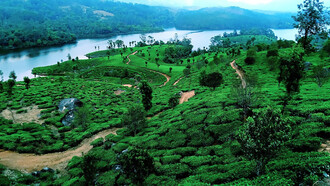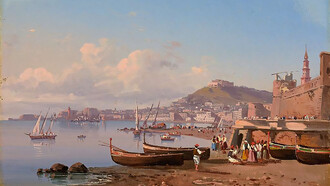To contextualise the discussion in this article, let it be clear what it is all about. The article is about safety, in particular, as this pertains to travellers or tourists. A simple online definition of safety by Mirriam-Webster.com, states that safety is “the condition of being safe from undergoing or causing hurt, injury, or loss”1. With this conceptual formality now dispensed, let me share this short story in order to put things into perspective. In late February 2024, I had the pleasure of visiting Hong Kong for six days participating in an international trade fair. The experience was wonderful, especially for a first-time visitor to that city, the country, and broadly the East Asia region. My take-home positives from the trip include general prominence of English language speaking local people. Even more awesome, was the dual branding of merchandise in local stores in English and Chinese languages. A variety of products such as stationery, bottled water, KFC menus, etc., were branded in English and the local language. Isn’t that welcoming to an English-speaking visitor who knows nothing about the local language?
Besides the fascinating architecture of the city buildings and structures decorated with dazzling, eye-catching and animated evening lighting, the local people demonstrated respect for the road traffic rules, crossing at marked crossing spots, not just anywhere, as is the norm in other countries. Perhaps this is due to strict local laws, but admittedly, I did not enquire about this observation. However, my most interesting and instructive pleasant experience was the sense of safety and security people feel in public transport, especially the trains.
I used the train to travel from the Hong Kong International Convention Centre in Wan Chai to the Ladies Market in Mong Kok. The trip was in the late afternoon returning to the hotel in Wan Chai around 22 hrs. As a tourist from a crime-riddled African country, I found it so breathtaking that, while enjoying the train rides in the middle of the night to different destinations, people were comfortable using their cell phones, tablets and laptops, without fearing that thugs would just show-up and confiscate these devices from their rightful owners, even hurting them in the process. This was an experience that made me really feel that I was indeed in a different country with a different culture and its own way of life.
In January 2024, Statistics South Africa reported that tourism in the country has registered positive gradual improvements from the devastating effects of the COVID-19 pandemic. In 2023, 8.48 million people visited South Africa according to the records of the relevant authorities. Though hailed as an improvement from the previous year’s statistics, the total tourist arrivals were 17,1% below the pre-pandemic levels, moving from 10,23 million in 2019 to 8,48 million in 20232. Besides the negative impact of the Covid-19 pandemic, South Africa has unfortunately reversed the gains made in the tourism sector due to, among the top contributing factors, the high crime rates, which affect the tourists both domestic and international streams.
An undated opinion piece issued by the South African National Department of Tourism makes reference to the statements made by the President of the Republic in his 2019 State of the Nation Address, in which he argued that “enhanced destination marketing and measures to strengthen tourism safety will create the conditions for the growth we envisage and the jobs and opportunities that will follow." 3 During the 2019 Africa Travel Indaba, the premier tourism fair, the President of the Republic stated that “we must deal with another major challenge, a challenge which was well articulated to me by the President of China, who said to me that many Chinese tourists want to come to South Africa and Africa, but the issue that is holding them back is crime”4. The issue of crime and its negative impact in the tourism sector has exacerbated the challenges caused by Covid-19, thus prolonging the attainment of the desired recovery targets in the sector.
The initiatives of the South African National Tourism Minister to engage the subnational government structures and the international community in the country on tourism safety issues is commendable and ought to be encouraged to happen regularly. However, beyond the interactions with the elites, some of whom benefit from government protection through the provision of personal protectors and security guards at their residences, government interventions should be focused more on addressing crime against tourists who travel on their own without any form of security protection. The country’s laws dealing with crime perpetrators ought to be more stringent than they currently are in order to serve as a deterrent rather than as an ineffective panacea.
The general public should be continuously educated about the critical importance of a nation’s brand, reputation and marketing abroad. Tourism is a sector that offers limitless economic opportunities even to the less educated and illiterate (who cannot read and write) people, who solely depend on their natural skills, talents and gifts to entertain tourists and sell handmade souvenirs to them, as well as prepare local dishes as part of promoting the nation’s cultures and traditions. Crime is therefore everyone’s business and must be dealt with decisively. The National Tourism Safety Strategy (NTSS) was launched in 2018 as a long-overdue but a welcome development. The NTSS has three main strategic pillars, namely:
- Proactive measures,
- Responsive measures, and,
- Aftercare programmes.
For the government, the overall objective of the NTSS is to forge coherent partnerships between the public and private sector tourism stakeholders and role-players in a consolidated and structured manner. It is encouraging, though still insufficient, to create a structure for coordination of efforts for tourism safety. Fundamentally, tourists whether local or international have to be guaranteed safety from their point of departure, during the journey until they reach their destination. Responsible behaviour of citizens, swift law-enforcement response and timely judicial recourse are all factors that would help turn things around insofar as improving South Africa’s reputation is concerned.
In the beginning of the year, members of the diplomatic corps notably American, Canadian, and United Kingdom missions, issued travel advisories to their citizens planning to travel to South Africa. The travel advisories highlighted the high prevalence of crimes such as rape, murder, muggings, armed assaults, theft, carjackings, etc. Contrary to my Hong Kong experience, most of these crimes are committed during the night or after dark hours. Concerning about this is the fact that, during this time of the day, afternoon, or early evening, some people travel back home from work and most of them use public transport such as trains, buses, and mini-bus taxis. Locals and tourists alike, are not safe in these modes of transport as much as they are not safe in the private vehicles which are also subjected to hijackings and robberies.
To me, it feels like people’s freedoms are restricted, if not denied by criminals. Just imagine when you are planning your well-deserved holiday or even an official trip, you are advised that to protect your personal safety do not have valuables on display either in your hands or visible in your vehicle or handbag; do not leave valuables in your car; stay alert and be cautious of people who approach you. As an international tourist, or even as a local resident, you do not feel comfortable asking for a direction from someone you meet on the street even if you know you are getting lost. Furthermore, you do not have to walk around after certain hours in the evening, especially women, due to high incidents of rape and murder. At the airports travellers are advised to be vigilant and not fall for “staged mishaps” when someone deliberately bumps into you or spilling a drink with an intention to divert your attention and steal your bag and passport.
It is important to state that not every tourist visiting the country experiences crime, but the main concern is the high probability of falling victim to it. A few years ago, when I was serving my country abroad, I worked so hard to support a government delegation from the country I was serving in to visit South Africa to learn best practices on public sector procurement and audit processes. One of the leaders of the delegation, who few years later, became a national cabinet minister, called me two days during the week they were supposed to have been in my country, reporting that their delegation was robbed right inside the hotel premises before they could even step out of the vehicle that transported them from the OR Tambo International Airport. She was visiting my country for the first time, as was the case with other members of her delegation. Consequently, the visit was abruptly aborted because of crime against an official delegation, which the thugs knew nothing about, and these were effectively tourists to our country. Undoubtedly, they were marked from the airport. She told me that due to the unfortunate incident she would think twice about visiting my country again as it would take her some time to recover from that unpleasant experience.
The government is taking initiatives to address tourism safety and security issues. These include the establishment of the National Tourism Safety Forum to help tourists who are victims of crime, the increased deployment of tourism monitors to key tourist attractions such as national parks and air ports. The Tourism Monitors are mandated to, among other things, patrol the identified tourists attraction areas, raise tourism awareness and provide information to tourists, and report any crime incidents to the South African Police Service and other law enforcement agencies.
Further interventions required include citizen responsibilities such as respect for the law; upholding high standards of decent behaviour; welcoming tourists and giving them the experience of a lifetime; daily public education on nation-branding and reputation management through mass media and social networks. Tourism authorities and industry players should spend more resources building a tourists friendly environment at home rather than trotting the globe selling a destination that poses serious risks to the life of a tourist. When domestic tourists feel safe in their local holiday destinations, they will effortlessly sell their country abroad, especially in this age of information and knowledge economy promoted by the technological advancements. The law enforcement agencies must not only bite, but they must also leave a deterrent mark on crime perpetrators. In addition to other various tourism services and products offered at the destination, tourist safety and security is a strategic priorities in branding and marketing a country for tourism promotion and the attraction of foreign investment.
Lastly, what tourism is really about, it is about exploring life, enjoying life, embracing life. Tourism is about joy and happiness; it is about appreciating all that is good and beautiful about our existence on earth. It should never bring sadness, pain, hurt and/or loss. It should inspire hope, ignite dreams, change lives for the better, create opportunities for all and build lasting human relationships across the world, transcending all artificial barriers to human co-existence.
References
1 Merriam-Webster. (n.d.). Safety.
2 Statistics South Africa. (n.d.). South Africa's population growth is similar to the global trend.
3 Department of Tourism, South Africa. (n.d.).Opinion piece - Safety of tourists in SA top of government agenda.
4 Ibid.















